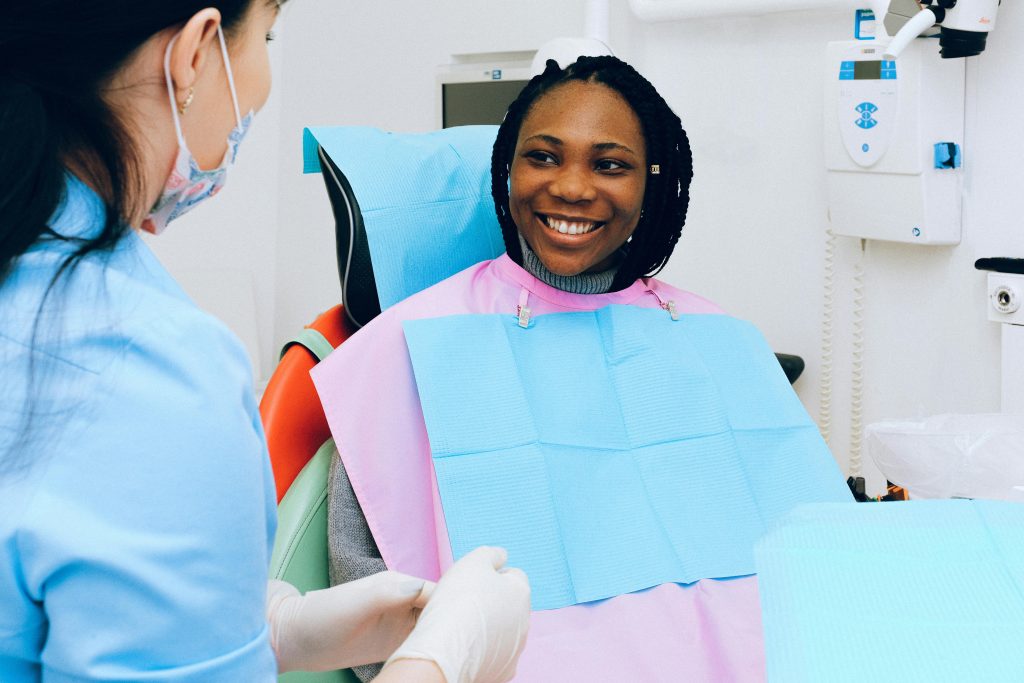An overbite is a common dental condition where the upper front teeth significantly overlap the lower front teeth when the mouth is closed. This overlapping can vary from a slight overlap, which is considered normal, to a more severe overlap, which may require treatment. Overbites are one of the most prevalent dental issues, affecting people of all ages. Understanding what an overbite is, what causes it, the potential complications, and the treatment options available can help individuals make informed decisions about their dental health.
What Causes an Overbite?
Overbites are often caused by a combination of genetic and environmental factors. Here are some of the primary causes:
1. Genetics:
– Just like other physical traits, the alignment and structure of your teeth can be inherited. If your parents or grandparents had an overbite, there’s a higher chance you might develop one too.
2. Childhood Habits:
– Certain childhood habits, such as thumb sucking, prolonged pacifier use, or excessive bottle-feeding, can contribute to the development of an overbite. These behaviors can exert pressure on the teeth and jaws, leading to misalignment.
3. Jaw Size and Shape:
– The size and shape of the jaw can play a significant role in the development of an overbite. For example, a small lower jaw or a larger upper jaw can cause the upper teeth to protrude further than they should, resulting in an overbite.
4. Tooth Development:
– If the teeth do not develop in the correct position, this can lead to various alignment issues, including overbites. This can occur due to the premature loss of baby teeth, delayed eruption of adult teeth, or overcrowding.
5. Injuries:
– Injuries to the face or jaw during childhood can affect the alignment of the teeth and jaws, potentially leading to an overbite. If the injury impacts the growth or development of the jaw, it can cause the upper teeth to overlap the lower teeth more than normal.
Complications of Having an Overbite
While a slight overbite is normal and even desirable for a functional bite, a severe overbite can lead to a range of complications. Here are some of the potential issues that can arise from an untreated overbite:
1. Jaw Pain and TMJ Disorders:
– A significant overbite can cause the jaw to function improperly, leading to pain and discomfort. This misalignment can also strain the temporomandibular joint (TMJ), resulting in TMJ disorders, which can cause chronic pain, headaches, and difficulty chewing.
2. Tooth Wear:
– When the teeth do not align correctly, it can lead to uneven pressure on certain teeth, causing them to wear down prematurely. This can result in sensitivity, an increased risk of cavities, and the need for restorative dental work.
3. Difficulty Biting and Chewing:
– An overbite can make it challenging to bite into certain foods, particularly those that require a strong front bite, like apples or sandwiches. This can impact a person’s ability to enjoy a varied diet and may lead to nutritional deficiencies.
4. Increased Risk of Tooth Damage:
– The upper front teeth are more exposed in cases of severe overbites, making them more susceptible to injury. A fall, accident, or impact during sports can easily result in chipped, cracked, or knocked-out teeth.
5. Speech Impediments:
– A pronounced overbite can affect speech patterns, leading to lisping or difficulty pronouncing certain sounds. This can be particularly problematic in children as they develop language skills.

Treatment Options for Overbites
The good news is that overbites can be effectively treated, especially when addressed early. The treatment approach depends on the severity of the overbite and the patient’s age. Here are some common treatment options:
1. Orthodontic Appliances:
– For children and adolescents, orthodontic appliances like braces or retainers are often used to correct an overbite. These appliances work by gradually moving the teeth and jaw into the correct position over time.
2. Invisalign:
– Invisalign is a popular treatment option for mild to moderate overbites, particularly in adults. Invisalign involves wearing a series of clear, removable aligners that gradually shift the teeth into alignment. For those in need of Invisalign in Plymouth, it’s essential to consult with a qualified orthodontist to determine if this treatment is suitable for your specific case.
3. Jaw Surgery:
– In severe cases where the overbite is caused by a significant jaw misalignment, surgery may be required to reposition the jaw. This option is typically considered only when other treatments are not effective, and the overbite is causing functional problems.
4. Retainers:
– After undergoing orthodontic treatment, patients often need to wear retainers to maintain the new alignment of their teeth. Retainers are particularly important in preventing the overbite from recurring.
5. Behavioral Modifications:
– For young children, addressing the habits that contribute to an overbite, such as thumb sucking or pacifier use, can prevent the condition from worsening. Early intervention can minimize the need for more extensive treatment later on.
Conclusion
An overbite is a common dental condition that can range from a minor alignment issue to a more serious problem requiring treatment. Understanding the causes, complications, and treatment options for overbites is essential for maintaining good oral health. If you or your child has an overbite, it’s important to consult with a dentist or orthodontist to determine the best course of action. With the right treatment, it’s possible to correct an overbite and prevent the complications associated with this condition.





